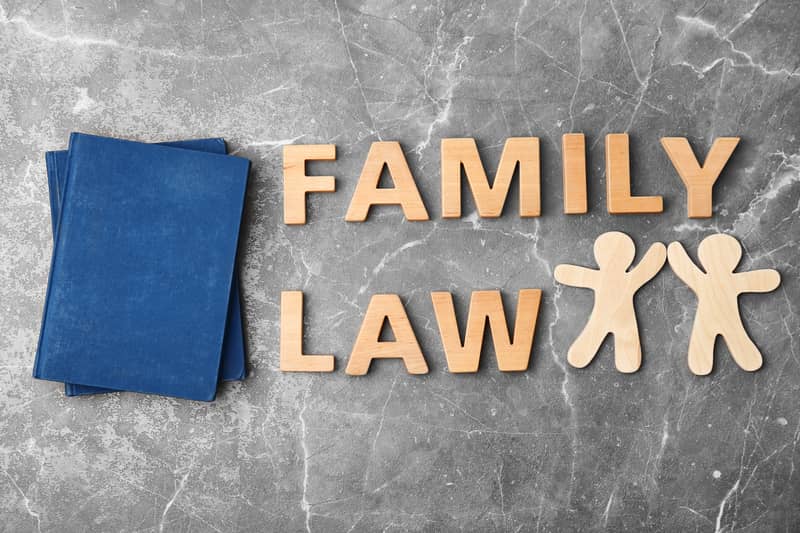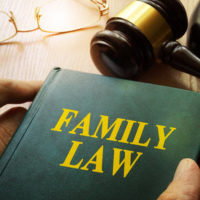
529 Savings Plans
 Equitable Distribution: 529 Savings Plans
Equitable Distribution: 529 Savings Plans
In an Equitable Distribution NC proceeding, how does the Family Court judge classify college savings plans? Specifically, are 529 Savings Plans, funded during the marriage and using marital funds, classified as a marital asset, divisible property, or separate property?
In a case of first impression clarifying Equitable Distribution, the North Carolina Court of appeals classified savings pursuant to 529 Savings Plans a marital asset, and therefore subject to distribution – Bill Powers, Charlotte Family Law Attorney
In an August 7, 2018, published opinion written by the Honorable Richard Dietz, the Court decided a Mecklenburg County divorce matter known as: Berens vs Berens
How is Equitable Distribution NC Decided?
Under the Equitable Distribution laws in North Carolina, the trial court is required to “classify” the property into one of 3 categories:
- Separate Property
- Divisible Property
- Marital Property
Thereafter the court must then “distribute” the respective divisible and marital property. See: N.C.G.S. Chapter 50-20. Marital property in North Carolina is:
All real and personal property acquired by either spouse or both spounses during the course of the marriage and before the date of the spearation of the parties, and presently owned, except property determined to be separate property or divisible property
As a general rule, property acquired during the marriage yet given away to another party (not the husband or wife), including gifts to minor children, is not subject to equitable distribution.
Gifts Under the Equitable Distribution Laws
In order to constitute a “gift” under the law, there are two requirements:
- Present intent to make a gift, also known as donative intent; and,
- Delivery of the gift or actual or constructive delivery
That “delivery” must remove from the gift-giver all control, right, and title over the property.
As they relate to the Equitable Distribution Laws, 529 Savings Plans are NOT gifts. Unless specifically divested of an ownership interest, plan participants normally retain control over and ownership of the Savings Accounts. The children deemed beneficiaries of 529 Savings Plans do not control the assets under the Account.
Furthermore, pursuant to North Carolina 529 Savings Plans, the parents are not required to spend the funds on college or educational expenses for the benefit of their children (the plan beneficiaries). Technically parents have the legal right to withdraw all the funs associated with the 529 Plan, although there would be a hefty tax penalty.
Therefore, without some additional action undertaken by the parents to fully “gift” the 529 funds or restrict the use of the 529 Savings Plan, any savings accrued remain “solely the property of parents.” And as such, 529 Savings Plans are marital property and subject to Equitable Distribution as a marital asset.
Findings of Fact and “Unequal Distribution”
Chapter 50-20 authorizes the Family Court to Order an unequal distribution of marital property, subject to the Court’s proper consideration of the factors as listed within the “statutory factors” including things like:
- Property, income, and Liabilities of the parties
- The amount of time the parties were married
- The mental health and physical health of the parties
- Pensions, retirement accounts, and future deferred compensation not considered marital property
Any time the Family Court orders a division of marital property on an unequal basis, the court must make findings of fact as to each factor presented in evidence.” Many disputes regarding the distribution factors involve the findings of the court and how specific the court must be in specifying those findings of fact.
Divorce Lawyer Charlotte NC – Bill Powers
If you have questions about property distribution of marital assets, we are here to help. As Berens vs Berens makes clear, the process can be extremely complicated and have long-term financial consequences. Even in divorce cases that are generally amicable, disputes can arise over whether the property (both personal property and real property) is a marital asset.
Call Charlotte Divorce Attorney Bill Powers to schedule an in-person consultation: 704-342-4357
Learn More

Charlotte Child Custody and Contempt of Court
 The North Carolina Court of Appeals ruled this week on a longstanding Charlotte child custody and contempt of court legal issue, described as, “an exceptionally contentious and prolonged custody battle” between a father and mother in Mecklenburg County Family Court. Litigation began in January 2007 involving the custody of two children, one of whom has since “aged out” and has been the subject of various Show Cause Orders, Motions to Show Cause, Charlotte child custody and Contempt of Court proceedings since he was 11 years old.
The North Carolina Court of Appeals ruled this week on a longstanding Charlotte child custody and contempt of court legal issue, described as, “an exceptionally contentious and prolonged custody battle” between a father and mother in Mecklenburg County Family Court. Litigation began in January 2007 involving the custody of two children, one of whom has since “aged out” and has been the subject of various Show Cause Orders, Motions to Show Cause, Charlotte child custody and Contempt of Court proceedings since he was 11 years old.
Another daughter, who is now 17, is the subject of the present appeal in the Charlotte Family Court matter entitled Grissom v. Cohen. To download a copy of the NC Court of Appeals opinion as published on October 2, 2018, see: Charlotte Contempt of Court Child Custody 2018
The extent and nature of the litigation in the matter is remarkable, involving four different Charlotte Family Court Judges, 600+ findings of fact in 2 Custody Orders and at least two full child custody trials in Mecklenburg County. While truly extraordinary in scope and duration, it does serve as an example of the lengths to which parents will fight for child custody and visitation in Charlotte – Bill Powers, Divorce Lawyer Charlotte NC
Contempt of Court and Charlotte Child Custody Issues
In the latest round of litigation and appeals from a ruling by the Honorable Matthew Osman in Charlotte Family Court, the Plaintiff in the appeal (the mother Ms. Grissom) complained that the trial judge made a mistake by, “Failing to hold Father in civil contempt” and in effect, ending or eliminating the mother’s primary custody of a child.
Specifically, the attorney for the mother, a divorce lawyer Charlotte NC, alleged the district court judge:
- Applied the wrong Burden of Proof, confusing the differences and standards of proof, and who had the burden of proof, between
- Civil Contempt of Court – Greater Weight of the Evidence
- Criminal Contempt in Charlotte NC – Beyond a Reasonable Doubt
- Failed to acknowledge or enforce an alleged “Forced Visitation Order”
- Refused to find the father in Contempt of Court
The Court of Appeals disagreed on several legal issues, specifically writing the Plaintiff, “Makes the bold and legally impossible request that this Court make the factual determination” that the Defendant in the case (the father Mr. Cohen) violated the Modified Custody Order, that the father “willfully violated” the Custody Order, demanding the NC COA reset the case for trial for civil contempt.
One would be remiss in failing to note who wrote the Grissom v. Cohen opinion for the Court of Appeals, the Hon. Donna Stroud.
To say her Honor is dedicated to precision, especially in drafting Orders in civil court involving family law cases, and the associated legal standards applied at the appellate level to NC Family Law matters, is an understatement. The Grissom case, as it will likely come to be known among divorce lawyers in Charlotte and other family court jurisdictions, discusses a wide range of legal issues involving contempt of court, the burdens of proof for Show Cause Orders, the roles of family law judges, and the realities of child custody disputes.
Judge Stroud recently spoke to a Charlotte divorce lawyer seminar (continuing legal education CLE), sponsored by the Mecklenburg County Family Law section, titled, “Writing Good Orders – What Judges Want Family Law Lawyers To Know About Drafting Orders.” The Grissom v. Cohen ruling reminds family law attorneys there are important differences and distinctions between criminal contempt vs civil contempt.
Some of the more “big picture” legal issues in Grissom focus on:
- Family Court Judges in Charlotte and their duties- the “Trial Judge” has the responsibility to be the Finder of Fact. In divorce and family law disputes, the district court judge hears testimony at trials and during motions, listens to the evidence, weighs the evidence, resolving differences and conflicts in the evidence presented between the parties, and thereafter makes Findings of Fact and Conclusions of Law.
- The Appellate Courts in NC review, in family law cases, things like the appropriate Standard of Proof, Conclusions of Law, and whether the Conclusions, as a matter of law, are supported by the Findings of Fact. Generally, the Court of Appeals rules on whether legal issues or matters of contention, regarding the application of the NC Family Laws (including child custody, child support, contempt of court, etc.), were proper. Put simply, appellate courts review the application of the NC Family Laws and, when necessary, interpret the N.C.G.S. and other constitutional considerations. The Family Court Judge answers questions like, “Who gets the kids?” and “How much is child support in North Carolina?”
- The appellate courts also address technical differences between the Findings of Fact, Conclusions of Law, and the roles of the Courts. The Court of Appeals in family law cases does not review, on a de novo (“of new” or “for anew” in Latin) basis, contempt orders. They do not “re-try” the case or change legal rulings of a family law judge, even if they may have personally ruled another way. Appellate courts rule on the law, giving wide discretion to rulings by family court judges regarding factual issues, absent an abuse of discretion. Generally speaking, family court judges interpret evidence and decide factual disputes. Appellate judges look at the legal rulings, making certain the NC Family Laws are followed.
The legal standard of review in Charlotte family law cases involving contempt of court trials is whether there was competent evidence to support the Findings of Fact by the trial judge and further whether the Conclusions of Law by the Family Court judge were supported by the Findings of Fact – Bill Powers, Charlotte Divorce Lawyer
A key takeaway from the ruling is that unchallenged Findings of Fact are presumed accurate and otherwise supported by the competent evidence. That means they cannot be challenged on appeal, as they are described by family law attorneys as, “Binding on Appeal.” That is not to say the Appellate Courts of North Carolina cannot review rulings by Family Court Judges. Legal conclusions or what family law lawyers call, “Conclusions of Law” may be reviewed de novo by the NC Court of Appeals.
Call Bill Powers, Divorce Lawyer Charlotte NC NOW: 704-342-4357
Learn More
A Review of the Child Custody Determination Process
 The Uniform Child Custody Jurisdiction and Enforcement Act (UCCJEA) is a uniform law drafted by the Uniform Law Commission in 1997. The UCCJEA encompasses a set of guidelines for courts to follow in their determination of child custody. To date, the law has been adopted by 49 states and Washington, DC. The UCCJEA breaks down legal and physical custody, sole and joint custody, grandparent visitation rights as well as factors to assess custodial rights.
The Uniform Child Custody Jurisdiction and Enforcement Act (UCCJEA) is a uniform law drafted by the Uniform Law Commission in 1997. The UCCJEA encompasses a set of guidelines for courts to follow in their determination of child custody. To date, the law has been adopted by 49 states and Washington, DC. The UCCJEA breaks down legal and physical custody, sole and joint custody, grandparent visitation rights as well as factors to assess custodial rights.
Legal and Physical Custody
The law has divided custodial rights into two categories (legal and physical custody). Legal custody is the right and obligation to make decisions about the child’s well-being and upbringing. These include decisions regarding the child’s schooling, medical care and religious activities. Many states normally permit both parents to share legal custody of the child depending on the circumstances of the custody case. Physical custody is the right of a parent to have a child reside with him or her. There are two forms of physical and legal custody: sole or joint custody.
Joint or Sole Custody
There is a common misconception in child custody proceedings surrounding the definition of joint and sole custody. Many misconstrue these terms as a reference to physical custody alone. However, when a parent shares a form of custody, they are deemed to have joint custody for that specific form of custody. When one parent has a form of custody, they have sole custody for that form of custody. It is common for both parents to have joint legal custody while one parent has sole physical custody with visitation rights. Another arrangement permits one parent to have custody over the child during the school year while the other parent has custody over summer and spring breaks as well as certain weekends. This is another form of joint physical custody.
“Best Interests” Factors
With North Carolina’s adoption of the UCCJEA, the state is mandated to adhere to certain standards when determining child custody. A court determining child custody in North Carolina must consider a litany of circumstances surround the child and the many dynamics involved in the family’s life. Here are few of the factors a court will take into consideration:
- each parent’s wishes regarding custody
- the child’s age, sex, physical and mental health
- the child’s adjustment to home, school and community
- the child’s involvement in a religious faith
- each parent’s history of domestic violence (if any)
- each parent’s work schedule and child-care arrangements, and
- the child’s preference, if the child has reached age of discretion.
The overarching theme when determining custody is the “best interests” of the child. This best interests concept seeks to ensure and maintain the overall well-being of the child to foster their growth and development.
Charlotte Child Custody Attorneys
It is imperative that you hire an experienced family law attorney if you seek to fight for the custody of your child. The importance of this endeavor is too high to not involve a knowledgeable attorney. The experienced lawyers at Powers Landreth PLLC will advise and provide you with aggressive representation on all your child custody matters. Contact us now for a consultation.
Resources:
law.cornell.edu/wex/legal_custody
uniformlaws.org/shared/docs/child_custody_jurisdiction/uccjea_final_97.pdf
ncga.state.nc.us/gascripts/statutes/statutelookup.pl?statute=50-13.2
Learn More
The Legalities of Same-Sex Marriage in North Carolina
 The applicability of federal law in a country where each state is its own sovereign can cause some complexity for issues such as same-sex marriage. Marriage is under the ambit of state law, however, where the federal law interprets state law as a violation of constitutional rights, states must yield to the federal interpretation of the law. Same-sex couples seeking to marry have to gain a clear understanding of the marriage laws governing their jurisdiction. North Carolina is an example of a state where some complexity exists.
The applicability of federal law in a country where each state is its own sovereign can cause some complexity for issues such as same-sex marriage. Marriage is under the ambit of state law, however, where the federal law interprets state law as a violation of constitutional rights, states must yield to the federal interpretation of the law. Same-sex couples seeking to marry have to gain a clear understanding of the marriage laws governing their jurisdiction. North Carolina is an example of a state where some complexity exists.
Same-Sex Marriage Under Federal Law
To fully understand state law, individuals must understand its relationship to the federal law. On June 26, 2015, same-sex marriage was pronounced as legal nationwide in the landmark case of Obergefell v. Hodges. In that case, the Supreme Court of the United States held that same-sex marriage was a guarantee under the Due Process Clause and Equal Protection Clause of the Fourteenth Amendment of the Constitution. With this ruling, same-sex marriages were recognized in all 50 states and Washington D.C. As of today, about seven counties in Texas and Alabama do not issue marriage licenses to same-sex couples.
North Carolina’s Same-Sex Marriage Laws
In North Carolina, same-sex marriage has been recognized since 2014 after the ruling in General Synod v. Cooper. In that case, the U.S. District Court held that a denial of marriage rights to same-sex couples in North Carolina was unconstitutional. Therefore, North Carolina permitted same-sex marriage before the Supreme Court handed down the federal ruling in Obergefell v. Hodges. Prior to the Cooper ruling, North Carolina had a statutory ban on same-sex marriage that passed in 1996. In 2012, the North Carolina legislature amended the state Constitution with marriage defined as a union between man and woman. After the ruling in Cooper and Obergefell, the 2012 statutory pronouncement is no longer applicable in North Carolina. It is important to note that North Carolina recognized (and still recognizes) domestic partnerships between same-sex couples.
Recent State Bill Introduced Against Same-Sex Marriages
On April 11, 2017, the North Carolina House of Representatives introduced a bill entitled the “Uphold Historical Marriage Act” also known as House Bill 780. The bill sought to recognize marriage as only between a man and woman as pronounced in the 2012 amendment to the state constitution. The bill directly undercuts the ruling in Obergefell, which gives credence to opponents who call the bill “null and void.” The bill has not passed the North Carolina state legislature as of March 2018. Presently, same-sex marriage remains lawful in North Carolina.
Charlotte Same-Sex Marriage Attorneys
Although same-sex marriage laws are permitted in the U.S., some couples still face challenges when it comes to divorce and child custody. Similarly, there is some complexity when same-sex couples that have been cohabitating for years without marrying seek to have their relationship recognized under the law. The experienced lawyers at Powers Landreth PLLC will advise you on your same-sex marital matters to prepare you for the road ahead. Contact us now for a consultation.
Resources:
supremecourt.gov/opinions/14pdf/14-556_3204.pdf
altoday.com/archives/17555-two-years-later-7-alabama-counties-still-not-issuing-marriage-licences-sex-couples
ncleg.net/Sessions/2017/Bills/House/PDF/H780v0.pdf
washingtonpost.com/news/post-nation/wp/2017/04/12/north-carolina-bill-banning-same-sex-marriage-again-wont-be-heard-house-speaker-says/?utm_term=.d1bbdd1ed76f
clearinghouse.net/chDocs/public/PB-NC-0006-0011.pdf
Learn More
Spousal Privilege: When Marriage Protects
 Spousal privilege is the legal and policy doctrine that accords confidentiality between spouses with an aim to encourage martial harmony and to protect families. There are two types of spousal privilege: (1) testimonial privilege and (2) communications privilege. Each privilege applies in finite circumstances and requires an inquiry into the status of the marriage.
Spousal privilege is the legal and policy doctrine that accords confidentiality between spouses with an aim to encourage martial harmony and to protect families. There are two types of spousal privilege: (1) testimonial privilege and (2) communications privilege. Each privilege applies in finite circumstances and requires an inquiry into the status of the marriage.
Testimonial Privilege
Testimonial privilege is asserted in criminal cases. In this scenario, one spouse is called to testify against another spouse in a criminal proceeding. The spouse who is being called to the stand can assert testimonial privilege and refuse to testify against the defendant spouse. At the same time, this privilege is not absolute. The witness spouse may choose to waive his or her privilege and testify anyway. This can occur even under the objection of the defendant spouse. In different jurisdictions, there are exceptions to testimonial privilege including in the case of marital rape. For the testimonial privilege to apply, the defendant spouse and the witness spouse must be married at the time the privilege is asserted.
Communications Privilege
Spousal communication privilege is asserted in both criminal and civil cases. This privilege covers words uttered and actions taken during the marriage. The totality of the circumstances must convey that the communication was intended as private. Therefore, one spouse can assert the communications privilege when asked to testify to private, confidential communications occurring during the marriage. Unlike testimonial privilege, communications privilege survives the end of the marriage. As such, a spouse can assert the communications privilege as long as the communication occurred during marriage even though the marriage has now ended in divorce or death. In the case of spousal communications, both spouses are permitted to refuse to make a disclosure. The burden is on the opposing party to prove that the words or acts were not intended as private.
Spousal Privilege in North Carolina
The spousal testimonial and communications privileges are known as common law constructions. In North Carolina, these privileges are statutory. The statutory formation may include multiple exceptions to the rules conveying that the state is more interested in other matters that may trump keeping harmony in the marital relationship. Spousal communication privilege in North Carolina is quite similar to the common law construction:
No husband or wife shall be compellable to disclose any confidential communication made by one to the other during their marriage.
However, North Carolina provides the following exception in its version of testimonial privilege:
- Criminal cohabitation or bigamy
- Assault or threats
- Trespass upon the residence of other spouse when living separately
- Abandonment or failure to provide support
- In the prosecution of one spouse for any criminal offense against the minor child of the couple or one spouse
Charlotte Divorce Attorneys
The spousal testimonial and communications privileges can appear as obscure evidentiary rules. However, in practice the assertion or lack thereof can have severe repercussions in divorce proceedings and related criminal mattress. The lawyers at Powers Landreth PLLC can advise you on spousal privilege matters and prepare you accordingly. Contact us now for a consultation.
Resources:
law.cornell.edu/wex/marital_privilege
ncga.state.nc.us/enactedlegislation/statutes/html/bysection/chapter_8/gs_8-57.html
law.cornell.edu/wex/marital_privilege
Learn More
Abuse Victim Seeks to Amend North Carolina’s One-Year Divorce Requirement
 At first blush, the North Carolina law requiring a one-year separation period before a court can grant divorce has some saving qualities. One might view the law as creating the space and time for couples to reconsider divorce, which is especially important when children are involved. However, for certain individuals, the one-year waiting period is quite a burden.
At first blush, the North Carolina law requiring a one-year separation period before a court can grant divorce has some saving qualities. One might view the law as creating the space and time for couples to reconsider divorce, which is especially important when children are involved. However, for certain individuals, the one-year waiting period is quite a burden.
One-Year Waiting Period May be Incompatible for Certain Marriages
A 33-year-old woman living in North Carolina separated from her husband and was able to provide solid evidence to a court to warrant a restraining order. Included in her evidence were photos of injuries she claims she sustained from the abuse of her husband. Even with a documented history of abuse and a restraining order, the woman must wait one year before seeking a divorce. During the interim, she had to pay her husband’s health insurance. She also had to endure the psychological distress of knowing that the person who allegedly abused her was legally recognized as her husband. Possible abuse victims like this woman fear for their safety when the state requires prolonging a legal relationship, which brings them pain and suffering. The issue with the one-year waiting period is not limited to psychological pain. Like the woman’s payment of her estranged spouse’s health insurance, sustained legal recognition of the marriage carries certain obligations and requirements abuse victims should not have to maintain. In one respect, the obligation may prove unethical and dangerous.
Domestic Abuse Victim Seeks to Amend G.S. 50-6
The woman’s ordeal prompted her to create a petition requesting North Carolina Attorney General and the state General Assembly to amend G.S. 50-6. The petition seeks an amendment of the one-year waiting period for established abuse victims. The woman’s campaign garnered national attention after her story was featured on Now This, a national news outlet. The campaign sought to highlight the counterintuitive nature of the law. For example, it is rather unethical to require a spouse to remain married to an individual who has been convicted of stabbing him or her. Proponents of amending G.S. 50-6 find no defensible argument requiring an abuse victim to continue a marriage that is dangerous to his or her well-being. North Carolina is not the only state with a waiting period requirement. Other states (Illinois, Maryland and Pennsylvania) actually have a two-year waiting period if the divorce is not mutually consensual.
How Divorcing Abuse Victims Can Manage North Carolina’s One-Year Requirement
As an abuse victim seeking a divorce, the best thing you can do is get out of harm’s way. This includes obtaining a domestic violence protective order and ceasing cohabitation. Even though G.S. 50-6 is still the law in North Carolina, there are additional safeguards abuse victims can request to facilitate their safety and tamper the obligations of the legally recognized marriage. This includes requiring that law enforcement remove the defendant from a shared home, ordering the defendant to stay away from the plaintiff’s home, school or place of work, ordering the defendant to pay his or her own insurance, and ordering the defendant to forfeit any firearms or other weapons. Abuse victims must keep well-documented records of all encounters with their abusive spouse. In addition, hire an experienced family law attorney to aggressively fight for your interests during this critical juncture.
Charlotte Divorce and Domestic Abuse Attorneys
At Powers Landreth PLLC we will provide zealous representation to ensure that the law works on your behalf. Even though G.S. 50-6 is still the law in North Carolina, our experienced family law attorneys can advise you and craft legal strategies to facilitate your one-year transition. Contact us now for a consultation.
Resources:
womansday.com/relationships/dating-marriage/a16637660/north-carolina-divorce-domestic-abusive-petition/
ncleg.net/enactedlegislation/statutes/html/bysection/chapter_50/gs_50-6.html
change.org/p/north-carolina-general-assembly-domestic-violence-victims-shouldn-t-have-to-wait-a-year-and-day-to-divorce-their-abuser/u/22328283
Learn More
Why Did I Get Married? Annulment Basics in North Carolina
 Annulment is the legal procedure that declares a marriage void from its inception. The marriage is deemed as illegal when it was pronounced, therefore, the effect of an annulment is retroactive invalidity. Annulment is granted on varying grounds depending on the state at issue including insanity, bigamy and incest.
Annulment is the legal procedure that declares a marriage void from its inception. The marriage is deemed as illegal when it was pronounced, therefore, the effect of an annulment is retroactive invalidity. Annulment is granted on varying grounds depending on the state at issue including insanity, bigamy and incest.
Voidable vs. Void Marriages
Under North Carolina law, a marriage is that void is subject to annulment. In the alternative, a marriage that is voidable is a marriage that is entered into with a major defect including: (1) incest, (2) false pretenses, (3) impotence, (4) lack of sound mind, and (5) one of the spouses being under the age of sixteen. All of these instances are grounds that the court will consider as voidable. Unlike void marriages, a court can deem a voidable marriage as valid depending on the circumstances of the case. For example, in the case of false pretenses, if you remain married after you discover that your spouse was never pregnant (as was communicated before the marriage), then a court can find validity under the rationale that the pregnancy was not the actual reason for seeking the annulment.
One Annulment Ground in North Carolina
In North Carolina, the only ground for an annulment or void marriage is bigamy. Bigamy is the illegal act of marrying an individual who is already lawfully married to another individual. People who enter into bigamous marriages have entered into a void marriage per the law in all U.S. states. Bigamy, unlike the voidable grounds, is immediately void and the marriage is never valid under law.
How to Get an Annulment in North Carolina
Individuals seeking an annulment must file a claim for absolute annulment. The plaintiff spouse must file the claim in the county in which the defendant spouse resides. The more specific evidence and firsthand witness testimony the plaintiff shows, the more likely the annulment will be granted. With bigamy being the only ground for an annulment, plaintiffs are better served by providing solid evidence of the defendant’s marriage including marriage certificates, photos, or proof of children born of the first marriage.
Effect of a Void Marriage
In divorce proceedings, the individuals are considered as divorced after a divorce decree is issued. Under the law, the parties where married and the decree is the legal recognition of the dissolution of the marriage. After an annulment is granted, the marriage is deemed as to have never existed. You were and are currently single. However, children born to an annulled marriage are considered children of a valid marriage for the purposes of child support and parenting. Unlike divorce, property distribution and spousal support are not available in annulment proceedings.
Charlotte Annulment Attorneys
It is important to involve an experienced attorney to guide you through filing for an annulment or ending your voidable marriage. Annulment and voidable marriages are complex issues, but the Charlotte family law lawyers at Powers Landreth PLLC are ready to simplify the process and provide you with ardent representation. Timely filing of these claims will dictate your success. Contact us now for a consultation.
Resource:
ncleg.net/EnactedLegislation/Statutes/HTML/BySection/Chapter_51/GS_51-3.html
Learn More
What You Need to Know About Domestic Violence Protective Orders
 In North Carolina, a domestic violence protective order (DPVO) is a civil relief that is filed in district court. It permits the court to order an alleged abuser to do or refrain from doing certain acts as it relates to the plaintiff. Obtaining a DPVO requires the plaintiff to show that domestic abuse is being committed. In addition, the plaintiff must show a present or past personal relationship between themselves and the alleged abuser (among other requirements). The process for obtaining a DVPO has been streamlined for average citizens to take advantage of it to protect themselves.
In North Carolina, a domestic violence protective order (DPVO) is a civil relief that is filed in district court. It permits the court to order an alleged abuser to do or refrain from doing certain acts as it relates to the plaintiff. Obtaining a DPVO requires the plaintiff to show that domestic abuse is being committed. In addition, the plaintiff must show a present or past personal relationship between themselves and the alleged abuser (among other requirements). The process for obtaining a DVPO has been streamlined for average citizens to take advantage of it to protect themselves.
How to Obtain a DVPO
A plaintiff must go to their district court to file DVPO forms. If the plaintiff requires filing outside of business hours, they may go to a magistrate. If the plaintiff requires an emergency filing, then the DVPO may advance as an ex parte filing. The ex parte filing will apply for a temporary order, and will not require the presence of the alleged abuser when the temporary order is issued. The DVPO also provides for temporary custody by the plaintiff if there are children involved. In addition, the alleged abuser must surrender all firearms. There are no fees associated with filing a DVPO in North Carolina. After filing for the DVPO, the plaintiff must take the forms to the sheriff’s department. In turn, the sheriff’s department will serve the defendant with the complaint and a summons to appear in court. Thereafter, a hearing is scheduled on the merits of the case where the plaintiff must show evidence that the alleged abusive acts were actually committed.
DVPO Requirements
To obtain a DVPO, the plaintiff must show domestic violence from an individual with whom the plaintiff has a personal relationship. In North Carolina, domestic violence is defined as attempts to cause bodily injury; intentionally causing injury; imminent fear of serious bodily injury; continued harassment that causes emotional distress, etc. These actions include those that are inflicted on a minor. In addition, teenagers who are under the age of 18 may have their parents or guardian file the DVPO on their behalf. The personal relationship requirement is widely construed to include spousal, familial, roommate and dating relationships.
The Effect of a Standing DPVO
The effect of a standing DVPO is wide-reaching. A judge can order the defendant to do certain acts and/or refrain from doing certain acts, including:
- Order the defendant to refrain from assaults, threats and harassment
- Require that law enforcement remove the defendant from a shared home
- Order the defendant to stay away from the plaintiff’s home, school or place of work
- Order the defendant to make support payments
- Order the defendant to forfeit any firearms or other weapons
- Any such order as the judge may see fit for the situation
North Carolina Domestic Violence Lawyers
Domestic violence is a serious matter. To be sure, these matters are some of the most volatile legal issues in the realm of family law. The attorneys at Powers Landreth PLLC have years of experience dealing with North Carolina domestic violence laws and DVPO issues. We know that keeping you and your family protected is top priority. As such, it is imperative to seek the assistance of an experienced DVPO attorney.
Resources:
nccourts.org/forms/Documents/696.pdf
ncleg.net/enactedlegislation/statutes/html/bychapter/chapter_50b.html
Learn More
Property Distribution in Divorce Proceedings
 In the United States, divorcing parties, depending on their state of residence, are subject to equitable distribution or community property rules as it relates to the division of their property. Most states adhere to equitable distribution standards while a minority of states observes community property rules.
In the United States, divorcing parties, depending on their state of residence, are subject to equitable distribution or community property rules as it relates to the division of their property. Most states adhere to equitable distribution standards while a minority of states observes community property rules.
Community Property States
Community property encompasses assets that were acquired during the marriage, but excluding gifts and inheritances. Community property does not consider the named owner on the title of the property. It only takes into consideration that the property was acquired during the marriage thus included in the “marital community.” A minority of states adheres to community property rules during divorce proceedings including Idaho, Louisiana, Nevada, New Mexico, Texas, Washington, Wisconsin, Arizona, California and Alaska (by agreement).
Equitable Distribution States
In an equitable distribution state, assets and earnings that are acquired during the marriage are divided equally at divorce. This mechanism is termed “equitable” because the means by which property division occurs is deemed “fair.” Under equitable distribution, the property acquired by both parties during the marriage is likely separated between the two parties, while property acquired before marriage or acquired by one party is usually distributed to the party with ownership. Therefore, a house bought by both parties during the marriage, a joint bank account and a jointly owned small business can be classified as marital property for the purposes of property distribution. Property owned by the parties is presumed as marital property unless it falls under the definition of separate property. In addition, if the court finds one party guilty of fault (i.e., adultery, abandonment, cruelty), the court may order one party to receive less than the equal share of the marital property. Even in this instance, although not equal, the distribution is deemed fair. North Carolina is an equitable distribution state.
Equitable Distribution in North Carolina
North Carolina adheres to equitable distribution rules of property distribution. In North Carolina, once marital property is classified, the court divides the property between both parties. However, the inquiry does not stop at identifying the marital property. North Carolina has promulgated twelve factors for which the court must analyze to determine the most equitable division. The factors include (§ 50-20):
- Income, property, liabilities of each party
- Any obligation of support from a prior marriage
- Duration of the marriage and the age and physical health of both parties
- Need for custodial parent to occupy or own marital residence
- Any expectation of pension, retirement rights that are not marital property
- Direct or indirect contributions made by one spouse for the education or development of the other
- Any direct contribution to an increase of value in separate property during the marriage
- Tax consequences of transferring property
North Carolina Divorce Attorneys
The attorneys at Powers Landreth PLLC have represented and advised clients on equitable distribution matters for many years. We have substantial knowledge in transactional and court processes as it relates to marital property distribution and we will aggressively represent you in your case. Contact us now for a consultation.
Resources:
law.cornell.edu/wex/community_property
law.cornell.edu/wex/equitable_distribution
ncleg.net/enactedlegislation/statutes/html/bysection/chapter_50/gs_50-20.html
Learn More
What You Need to Know About Prenuptial Agreements
 What is a Prenuptial Agreement?
What is a Prenuptial Agreement?
A prenuptial agreement is a premarital agreement that is entered into before marriage and sets out the terms of separation. Prenuptial agreements are usually enforceable unless the agreement was entered into under duress, fraud or the agreement sets out unreasonable grounds thus rendering it void as a matter of public policy. Prenuptial agreements are usually signed after the couple enters into an engagement and before the marriage ceremony. Individuals who want prenuptial agreements are usually wealthy individuals, individuals who have been married before or people of advanced age. As mentioned, prenuptial agreements can include any terms over which the couple wants to contract over unless it is illegal. Couples frequently contract over asset and debt distribution, liabilities and child rearing. Some agreements include unusual, but legal terms, surrounding monetary penalties after infidelity as well as who retains custody of a pet during separation. Although couples can choose to contract over a wide range of topics, there are standard requirements contracting parties must follow that will result in an enforceable contract.
What Constitutes a Valid Prenuptial Agreement?
Parties must agree to a written contract that is signed before the marriage in order to constitute a valid prenuptial agreement. Firstly, both parties must freely enter into the contract without any pressure or duress. Secondly, all terms must be reasonable and fair. The terms contemplated in the agreement should apply to both parties where possible as to not bias one party over the other. Further, terms that are too speculative, overly personal (i.e., how a spouse should keep his or her appearance), or far-reaching (i.e., agreements seeking to control the actions of non-parties). Each party must fully disclose all assets, debts and liabilities. This rule usually targets the higher earning spouse who does not want a lower earning spouse to have a clear picture of the sources of their wealth. This rule also applies to spouses who are in heavy debt and seek to hide the debt. Importantly, each party to the prenuptial agreement should hire his or her own attorney to seek legal advice. It is a conflict of interest and unethical for one attorney to represent the interests of both parties who are in effect, adverse parties, for the purposes of the agreement. Even if one party chooses not to hire an attorney, that party should know that they are entitled to an attorney if they so choose.
Common Prenuptial Agreement Disputes
Common disputes that arise out of prenuptial agreements come to bear during marital separation when one spouse seeks to invalidate the agreement. The arguments advanced for the invalidation of a prenuptial agreement can come from credible and non-credible parties. Therefore, each party seeking to invalidate an agreement is subject to a credibility review as long as the agreement bears their signature. Parties who wish to invalidate the agreement can do so if the party believes they did not freely enter into the agreement thus were subject to pressure or duress. Another ground for invalidation is where one party is not aware of their right to seek the advice of legal counsel before signing. In this case, the court will review the totality of the circumstances as well as the education and sophistication of the party to render a decision.
Charlotte Divorce Attorneys
The attorneys at Powers Landreth PLLC have represented and advised clients on prenuptial agreements for many years. We will fight for your right to have an agreement invalidated or enforced based your unique needs. We have substantial knowledge in prenuptial contract law and we will aggressively represent your interests. Contact us now for a consultation.
Learn More